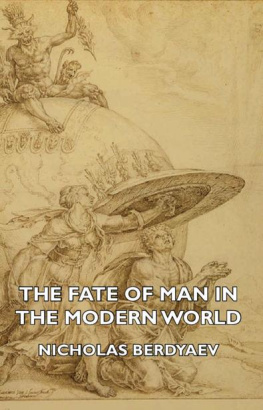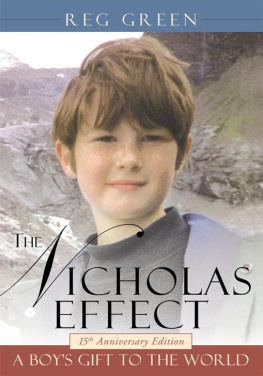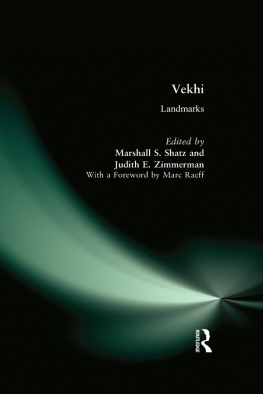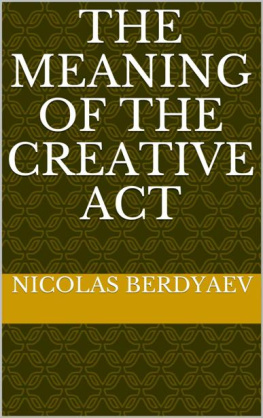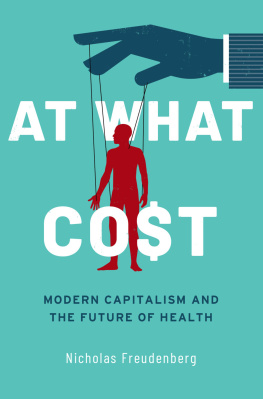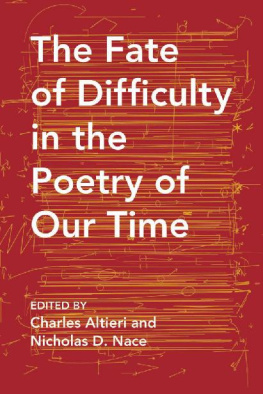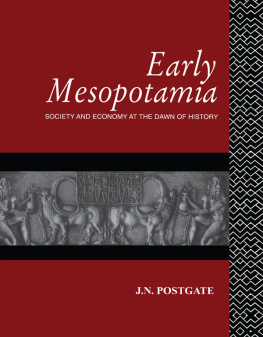Nicholas Berdyaev - The Fate of Man in the Modern World
Here you can read online Nicholas Berdyaev - The Fate of Man in the Modern World full text of the book (entire story) in english for free. Download pdf and epub, get meaning, cover and reviews about this ebook. year: 2012, publisher: Read Books Ltd., genre: Science. Description of the work, (preface) as well as reviews are available. Best literature library LitArk.com created for fans of good reading and offers a wide selection of genres:
Romance novel
Science fiction
Adventure
Detective
Science
History
Home and family
Prose
Art
Politics
Computer
Non-fiction
Religion
Business
Children
Humor
Choose a favorite category and find really read worthwhile books. Enjoy immersion in the world of imagination, feel the emotions of the characters or learn something new for yourself, make an fascinating discovery.
- Book:The Fate of Man in the Modern World
- Author:
- Publisher:Read Books Ltd.
- Genre:
- Year:2012
- Rating:5 / 5
- Favourites:Add to favourites
- Your mark:
- 100
- 1
- 2
- 3
- 4
- 5
The Fate of Man in the Modern World: summary, description and annotation
We offer to read an annotation, description, summary or preface (depends on what the author of the book "The Fate of Man in the Modern World" wrote himself). If you haven't found the necessary information about the book — write in the comments, we will try to find it.
The Fate of Man in the Modern World — read online for free the complete book (whole text) full work
Below is the text of the book, divided by pages. System saving the place of the last page read, allows you to conveniently read the book "The Fate of Man in the Modern World" online for free, without having to search again every time where you left off. Put a bookmark, and you can go to the page where you finished reading at any time.
Font size:
Interval:
Bookmark:
BY
NICHOLAS BERDYAEV
Author of
The End of Our Time, etc.
TRANSLATED BY
DONALD A. LOWRIE

First Printed in Great Britain
MY book, The End of Our Time, was written eleven years ago, and four years earlier my Meaning of History. In these two books I set forth my historio-sophic ideas in connection with our arrival at the end of a whole historical epoch. Much of what I then prophesied has been fulfilled or is now taking place. But many new elements have arisen which demand consideration, and I feel the need to write a sort of second volume of The End of Our Time. More keenly than ever I feel that night and shadow are descending on the world, just as was the case at the beginning of the Middle Ages, before the medieval Renaissance. But stars shine through the night and dawn is coming.
It has become a banality to say that we live in a time of historical crisis, that a whole epoch is ending, and a new one, as yet without a name, is beginning. Some are glad for this, others sorry, but all agree upon the fact. In reality what is happening is something even deeper. We are witnessing a judgment upon not one epoch in history, but upon history itself. And in this sense we live in an apocalyptic time; in this sense only, and not in the sense of the swift arrival of the end of the world. There is such a thing as the internal apocalypse of history. The apocalypse is not merely a revelation of the end of the world: it is also a revelation of the inner events of history, of the internal judgment upon history itself. And this is what is happening now.
Mans existence in this world is an historical existence. Existence is history. Besides this, history is the tragic conflict between the personal and the super-personal or the pre-personal. History never solves the conflict between personality and society, between personality and culture, personality and the mass; the conflict between quality and quantity. Personality is active in history, within history the individual is revealed, but history is merciless in its attitude toward personality and oppresses the individual. There is a meaning of history, and the recognition of this meaning belongs to Christianity.
At the same time, history is really the failure of man and of culture, the collapse of all human plans. The things man has planned do not come to pass, and the true significance of what takes place escapes mans comprehension. History has never limited itself in the means with which it operates; it has used any and all means to attain its ends, ends which often remain quite incomprehensible to man, and incommensurate with his own fate. Hegel spoke of the cleverness of the spirit of history, a cleverness which deceives man for the purpose of gaining its own ends. It may be said that in fact the subject of history is not man, not even mankind, but a non-human reason or spirit which in the teaching of Marx is transformed into non-human economics. Marx showed how men are materialized and dehumanized in a capitalist society. History has always worked for the general or universal, rather than for the private or individual. One might say, paradoxically, that man has shown great unselfishness in consenting to history. Perhaps, on the other hand, man was seeking his own interest when he accepted the way of history, but history deceived him, using mans self-seeking as a means to attain quite non-human goals. The cunning of history, against which the living personality rebels! Man has always been suppressed by history. History was mans destiny, but that destiny never interested history. The incommensurability between history and individual destinies is a tragedy un-solvable within history, a tragedy which demands he end of history itself. The super-personal has never been realized in history as a fullness of personal life. And even when history set itself personal and human objectives, it realized them by means of pressure upon the human personality. Hegel was a sort of incarnation in thought of the spirit of history, and his philosophy vas thoroughly anti-personal.
Against Hegel and against his idea of a universal spirit, revealing itself in history, men like Dostoevsky and Kirkegaard rose in protest. The objectivization of a spirit in history, which to held the mind of Hegel, really breaks away from the inner mystery of human existence and enters the natural-social realm. In such a realm objects are the given quantities, but not I and thou, not the world of human existence. (See my book Myself and the Objective Worldan essay on society and solitude.) The failure of history is none other than the tragedy of the lack of agreement between what exists as human and personal on the one hand, and on the other all objectivization, which is always extra-personal, non-human, anti-personal and anti-human. Every objectivization of history is non-human and impersonal. Man is fated to live in two different orders: that of existence, which is always personal although full of super-personal values, and that of the objectivized world, always non-personal and quite indifferent to personal values. Man is always faced with the often fatal dangers arising from the processes which take place in history. He is compelled to realize that the processes of history are fatal, inhuman forces, quite indifferent to his fate, forces as merciless as they are non-human.
We find this merciless non-humanity in the history of the formation of states and empires, in the struggles of tribes and nations, in revolutions and reactions, in wars, in the industrial-capitalistic progress and flowering of states and peoples, in the very formation and development of civilization. Evidently, the means with which history operates, which are used by historic reason, cannot be humanized. It is very difficult, for instance, to humanize the state, that pet creation of history. And at the same time man cannot escape from history, cannot put away his historic destiny. The religious and historic consciousness of Hinduism puts history aside, it is anti-historical. But the life of the Hindu people has not been made happier by that fact. It has lived in terrible poverty and want and in the vast injustice of the caste system, where pariahs are not considered as even human. Christianity is historic: it recognizes the meaning of history and operates in history. The Incarnation took place in history. But Christianity, although it is a historic force and although it has made all Christian nations historic, has never been able to realize itself within history. To objectivize Christianity is to place it in the same category as all objectivity. Objectivized in history, Christianity becomes a social phenomenon, it is subject to the socially prosaic. Christianity accepts history, operates within it, even battles against it, and its spirit would be unrecognizable in an historic objectivization. In a certain sense, every single human soul has more meaning and value than the whole of history with its empires, its wars and revolutions, its blossoming and fading civilizations. And because of this, the break with history is inevitablea judgment upon history must be passed.
Never before has the conflict been so strongly felt between man and history; never before have the contradictions of history been so sharply evident; never has man been so at the mercy of the processes at work in history; at the same time man was never so immersed in history, plunged to its very depths, never so objectivized or so socialized. No single person in modern society is exceptedno one can escape from the sphere of historic events which threaten his very being. In this connection there is no such thing as a privileged group: the fatality of history reduces all to a common level. Man faces the threat that nothing shall be left of himself, of his personal and intimate life, no freedom for his spiritual life or his creative thought. He is submerged in huge collectives, subject to non-human commandments. It is demanded of man that he give himself up without reserve, to society, the state, the race, the class, the nation.
Font size:
Interval:
Bookmark:
Similar books «The Fate of Man in the Modern World»
Look at similar books to The Fate of Man in the Modern World. We have selected literature similar in name and meaning in the hope of providing readers with more options to find new, interesting, not yet read works.
Discussion, reviews of the book The Fate of Man in the Modern World and just readers' own opinions. Leave your comments, write what you think about the work, its meaning or the main characters. Specify what exactly you liked and what you didn't like, and why you think so.

